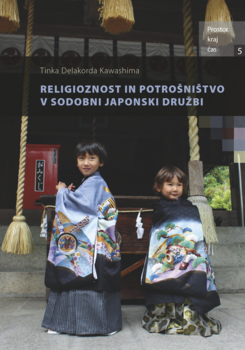Religioznost in potrošništvo v sodobni japonski družbi
The book ('Religiosity and consumption in the contemporary Japanese society‘) explores dilemmas regarding the effects of consumer culture on the secularization of religion. Author finds the key to understanding religion in a consumer society in the so-called popular religiosity, which she analyzes against the socio-economic and political contexts from early modern to contemporary Japanese society. Using various case studies she demonstrates how alongside official religiosity the Japanese pluralist religious field ‘allowed’ for popular religiosity with its worldly interests and practical benefits, which has had a positive catalytic role in the modernization processes. A contemporary counterpoint to such traditional popular religiosity is presented through empirical research conducted at Togenuki jizō − a popular religious site in Tokyo. The street vendors of food and clothing in front of the temple are seen to borrow religious symbols to successfully promote their products, whereas the buying of products embellished with religious symbols (i.e. during the so called ennichi festivities) may serve as a means of affirming social identities and establishing temporary communal contexts, within which religious practices take place at relatively regular intervals, thus strengthening the beliefs behind the religious symbols.
Downloads

Series
Institutes
License

This work is licensed under a Creative Commons Attribution-NonCommercial-NoDerivatives 4.0 International License.
